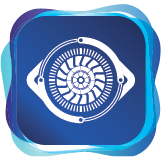 |
CCST9049 Science, Technology and Big Data
|
Course Description
Our ability to see plays a central role in experiencing the world around us. In this course, we will first study how we are able to perceive and understand what we see. Students will learn how our brain and eyes cooperate to perceive brightness, color, depth and motion.
Next, we will cover how this knowledge of the human visual system has influenced the development of computer vision. We will take an in depth look at the modern technology of deep learning which in some instances is capable of exceeding the capabilities of humans.
Finally, students will study how computer vision technology enables an extended reality (XR) through the use of AR, VR and BCIs. In a number of laboratory sessions, in our state-of-the-art Metaverse Innovation Laboratory, students will be able to gain hands-on experience with various XR equipment and understand how this technology will enable the metaverse, which is a hypothetical next iteration of the internet.

Course Learning Outcomes
On completing the course, students will be able to:
- Describe and explain the various theories that explain the psychology of human vision and how images are formed in the eyes.
- Understand how digital images and digital videos are represented by a computer. Students will also be able to explain how deep learning technology works and how its limitations impact the development of computer vision.
- Understand the history, vision, potential, and limitations of the metaverse. In particular, students will be able to understand how computer vision technology enables augmented reality and virtual reality and how blockchain technology enables ownership in the metaverse.
- Present and communicate a technical topic to the whole class by designing and delivering a group presentation. Students will also be able to appraise and evaluate presentations by their peers.
- Design, model, and view a digital item for the metaverse.
Offer Semester and Day of Teaching
Second semester (Wed)
Study Load
| Activities | Number of hours |
| Lectures | 24 |
| Tutorials | 12 |
| Reading / Self-study | 36 |
| Assessment: Assignments | 19 |
| Assessment: Group project | 25 |
| Assessment: Quizzes | 4 |
| Total: | 120 |
Assessment: 100% coursework
| Assessment Tasks | Weighting |
| In-class participation and discussions | 5 |
| Group project | 30 |
| Assignments | 20 |
| Participation in tutorials and workshops | 5 |
| Quiz | 40 |
Required Reading
Notes provided by the lecturer.
Selected articles from newspapers, magazines and websites.
Course Co-ordinator and Teacher(s)
| Course Co-ordinator | Contact |
| Dr D. Schnieders Department of Computer Science, Faculty of Engineering |
Tel: 2857 8450 Email: sdirk@cs.hku.hk |
| Teacher(s) | Contact |
| Dr D. Schnieders Department of Computer Science, Faculty of Engineering |
Tel: 2857 8450 Email: sdirk@cs.hku.hk |

